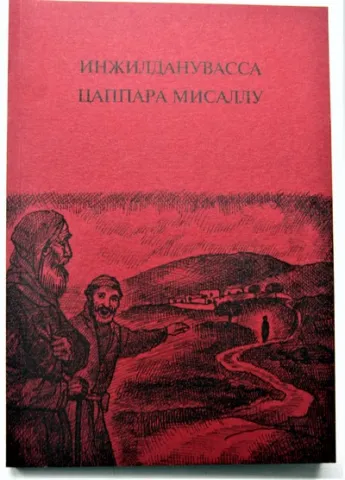The Laks are one of the indigenous peoples of Dagestan. Their language belongs to the Nakh-Dagestanian group of languages and is spoken by around 146,000 people. It is one of the 14 official languages of Dagestan. A newspaper is published in Lak and Dagestan radio broadcasts programs in Lak.
The Institute for Bible Translation’s Gospel Parables series began in 2007 with the Agul language edition, followed in 2015-2020 with the addition of versions in Bezhta, Tatar, Rutul, Tsakhur, Dargi, Dungan, Kumyk, Nogai, Kabardian, Even, Digor and Nenets.
Whereas versions in the other languages included only four parables from Luke’s Gospel, the Lak version has expanded this total to nine. The foreword to the book states that ‘these stories promote not the value of money, power, or adherence to religious rituals and traditions, but rather the value of every human being.’ The edition begins with the Parable of the Sower (Luke 8:4-15) – after all, the best preparation for the reading to come is to become ‘good soil’. It continues with the Parables of the Good Samaritan (Luke 10:30-35), the Foolish Rich Man (Luke 12:16-21), the Pharisee and the Tax Collector (Luke 18:10-14), the Rich Man and Lazarus (Luke 16:19-31), the Wedding Feast (Luke 14:15-24) and, finally, the book ends with three parables about lost things - the lost coin, the lost sheep and the lost son (Luke 15:3-32).
Gospel Parables in the Lak language can be accessed in pdf format in the electronic book section of IBT’s website. The translation team is also recording an audio version of these parables for inclusion in a smartphone app.
The Lak version of the four Gospels, Acts and Revelation is expected to be published as a single edition in early 2021.

